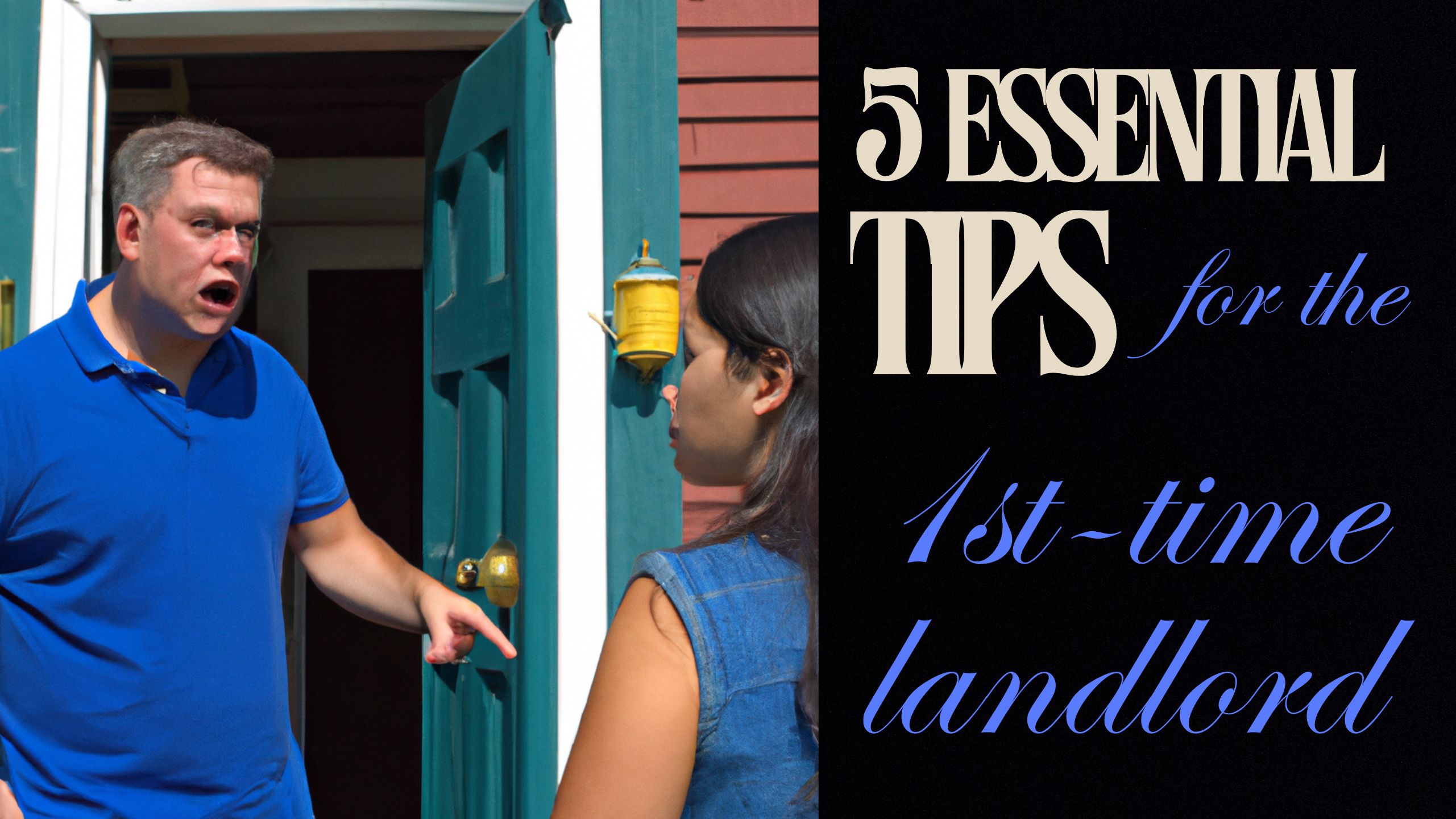
5 Essential Tips for First-Time Landlords: Navigating Property Management with Ease
Becoming a landlord for the first time can be both exciting and daunting. The prospect of generating rental income is appealing, but the responsibilities that come with managing a property can be overwhelming. To help you navigate this new venture, we’ve compiled a list of five essential tips that will make your journey as a first-time landlord smoother and more successful.
1. Screen Your Tenants Carefully
One of the most crucial steps in property management is tenant screening. Taking the time to conduct thorough background checks, credit checks, employment verification and reference verifications can save you a lot of trouble down the line. Look for tenants with stable income and enough monthly pay to cover the rent at least 2.5 times, good rental history, and a clean background. A reliable tenant will not only pay rent on time but also take care of your property.
2. Write and Execute a Comprehensive Lease Agreement
A well-drafted lease agreement is essential to protect your interests as a landlord. Make sure your lease covers all the important aspects, including rent amount, due dates, security deposits, maintenance responsibilities, and rules regarding property use. It’s also wise to include clauses that address common issues such as late payments, subletting, property damage, and liability. Consulting with a legal professional can ensure your lease agreement is airtight and compliant with local laws.
3. Stay on Top of Maintenance
Regular maintenance is key to keeping your property in good condition and ensuring tenant satisfaction. Develop a maintenance schedule that includes routine inspections, servicing of major systems (like HVAC and plumbing), and timely repairs. Promptly addressing maintenance requests from tenants can prevent minor issues from escalating into costly problems. Additionally, a well-maintained property is more likely to attract and retain good tenants.
4. Understand Landlord-Tenant Laws
Familiarizing yourself with landlord-tenant laws in your area is crucial. These laws govern various aspects of the rental process, from security deposits and eviction procedures to tenant rights and landlord responsibilities. Staying informed about these regulations will help you avoid legal pitfalls and ensure that you’re treating your tenants fairly. Resources such as local housing authorities and legal advisors can provide valuable guidance. Visit our website at https://www.atlantaareapropertymanagement.com/owners to view and download the Georgia Landlord-Tenant handbook.
5. Build a Positive Relationship with Your Tenants
Creating a positive landlord-tenant relationship can lead to a more pleasant and productive rental experience for both parties. Be responsive to tenant inquiries, address concerns promptly, and maintain open lines of communication. Be sure to keep all communication in writing, such as text or emails and store them online, just in case. Showing respect and understanding can foster trust and cooperation, making it more likely that tenants will take care of your property and adhere to the lease terms. A happy tenant is more likely to renew their lease, reducing turnover and vacancy rates.
By following these essential tips, first-time landlords can set the foundation for a successful property management experience. From careful tenant screening and comprehensive lease agreements to proactive maintenance and understanding legal obligations, these practices will help you navigate the complexities of being a landlord with confidence.












